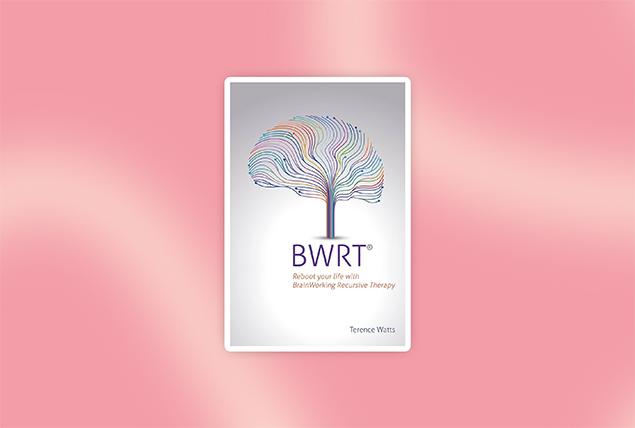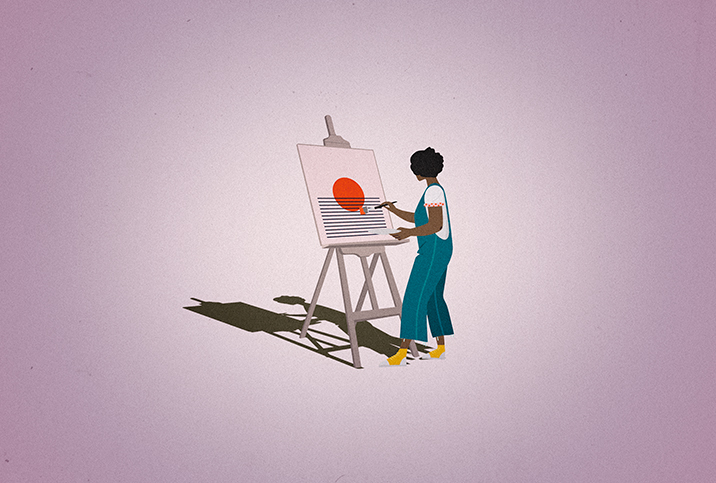Between the Pages: How to Reboot With BrainWorking Recursive Therapy

Key Points
- BWRT is a therapeutic approach that combines the intricacies of the human brain with recursive thought to address challenges and issues in a new way.
- This method can help individuals with issues related to relationships and concerns around sexuality, self-worth and anxiety.
- It is important you know the difference between self-worth, lack of confidence and an inferiority complex to help with personal change.
Terence Watts wrote "BWRT: Reboot your life with BrainWorking Recursive Therapy" as a step-by-step process to help people navigate specific challenges with new thinking.
Imagine a therapy that merges the intricacies of the human brain with the elegance of recursive thought, promising to untangle the knots of our minds in unprecedented ways.
Watts, a psychotherapist, international lecturer and trainer, and principal of the Essex Institute in the United Kingdom, founded the concept of brain-working recursive therapy (BWRT) in 2011.
In this exclusive interview with Watts, we'll explore the depths of BWRT's principles, origins and practical applications, and try to better understand how BWRT can help with relationships and concerns around sexuality and self-worth.
Editor's note: This interview has been edited for length and clarity.
Can you tell me a little bit about your background and what led you to write 'BWRT: Reboot your life with BrainWorking Recursive Therapy?'
Watts: My background is extremely eclectic, having 16 different jobs by the time I was 24, then four years in sales of fire protection equipment, followed by a career as a professional dance teacher with my own school, which overlapped with the discovery of my eventual vocation as a psychotherapist, which commenced in 1989.
I'd experienced a lot of life and hurt, knew how difficult it could be to survive it, discovered lots more while working with clients and then I discovered BWRT.
BrainWorking Recursive Therapy proved to be so easy, versatile and effective that the book was a "must-do" project. I somehow felt as if the universe had given me custody of something special, and it had to be shared as far and wide as I could possibly manage. That sounds a bit pretentious, but that's exactly how it feels.
In a nutshell, what is BWRT and how does it work?
BWRT is a process that works with the brain's first responder to life events. Some people call it the subconscious, though it's really an ancient part of the physical brain, the reptilian complex. It might create, say, anxiety which may not be necessary under the circumstances.
With BWRT, we don't have to spend time finding out why, as many therapies do. Instead, we create a change before the anxious "message" reaches the rest of the brain. At first, it was challenging to show how to do this with a self-help book, but after much thought (and a lot of editing), I was very happy with the result.
Chapter four, 'The Guilty Secret—Everybody has one,' discusses sex and sexuality. What are some common difficulties people face associated with sex and sexuality?
Sex and sexuality issues are plentiful and varied. For example, relationship issues, jealousy, low personal confidence, shyness, blushing, lack of assertiveness, eating disorders, anxiety and depression, and even some forms of emetophobia [fear of vomiting]. There are more, but those are the more common ones.
Recommended
- WTF Is Orgasm Anxiety?: You may be struggling to climax for a variety of reasons, but you can make behavioral changes.
- The Right Way to Take a Mental Health Day: Don't waste it. Your day off might be just what the doctor ordered.
- What's the Connection Between Bowel Movements and Erections?: Here's what we (rather awkwardly) know about getting a boner while pooping.
Why is so much anxiety underpinned by sexuality?
Because it's a fundamental process for life—the single most important behavior for the survival of the species. Because of this, the most successful species, the ones still alive today, have inherited the strongest urge for sexual activity.
An entire species could disappear in a single generation if something stops sexual activity. So the reptilian complex generates anxiety if there are attempts to suppress or not respond to sexual urges. It won't necessarily feel as if it has anything to do with sex, though, and the individual might vigorously argue it's not—and believe the idea is nonsense.
Equally, suppose somebody carries guilt about some aspect of sexuality. In that case, there can be a massive flare of anxiety if there's any indication they might get found out. Even scam emails do the rounds trading on that fear in an attempt to extort money.
How can BWRT help with problems related to sex and sexuality?
Well, the easy-to-follow self-help plan in the book works well for mild to moderate problems that may be based on embarrassment or guilt, for example. But for complicated and especially long-standing issues, a professional practitioner's attention is needed. Where there's been abuse or trauma, for instance, self-help might not make a great deal of difference, but a professional practitioner can change the world of the individual beyond belief.
It simply is not true that "you can never recover," as some claim. With BWRT, total relief is highly likely.
Can BWRT help with relationships?
It can. The book definitely can help there, but this is a difficult area because we can only make changes in the mind of the person who wants the change, not the other person.
There is a highly effective specialist relationship program that many practitioners use with couples, and there's a chapter in the book about Warriors, Settlers and Nomads, which can help make great changes to understanding and communication.
Between the Pages: 'Sexuality: A Graphic Guide': Author Meg-John Barker explains why the comic book medium is perfect for exploring sex. This 176-page comic book takes readers on a Scooby-Doo gang–like journey as the four main characters encounter monsters such as patriarchy, heteronormativity, ableism and white supremacy. The book is packed with quotes from (and illustrations of) leading sex researchers and theorists to help make academic topics more accessible and fun.
In the book, you talk about poor self-worth. What is the difference between low self-worth, lack of confidence and an inferiority complex? Why is it important to know the difference?
People often think they all mean the same thing, but they don't. Here's a brief definition of each:
- Low self-worth is about the whole self and comes from the unconscious comparison of ourselves with how we believe other people are. The problem is most people compare how they think about themselves with what others show or say about themselves. In other words, compare how they feel with how others look. They are certain they are lacking and, therefore, not worth as much in life as those others are.
- Lack of confidence is usually specifically focused on a relatively narrow area of life. For example, the individual might believe they can drive, cook, work a computer and grow plants as well as anybody else, but also believe that they are not very good when it comes to handling conflict situations or standing up for themselves.
- An inferiority complex is when an individual believes there is a single task everybody else can do almost without thought that they make a complete mess of. Therefore, [they] believe they are lacking some basic aspect of life that all others have. In other words, they are inferior to all others.
It's essential to know the difference because if you focus on the wrong thing, it probably won't work very well, and the thing you need to change will probably stay the same.
How can people boost their self-worth?
That's quite difficult to do on your own because poor self-worth often means a lack of belief in being able to do anything worthwhile. However, consciously recognizing that you're comparing what you believe about yourself with what you assume others are like, and recognizing that you're probably wrong—well, that you're definitely wrong, actually—is a good start.
What do you want people to take away from reading this book?
I want people to read it thoroughly and take on board that change is possible. But change doesn't come to you. You have to go to it.


















